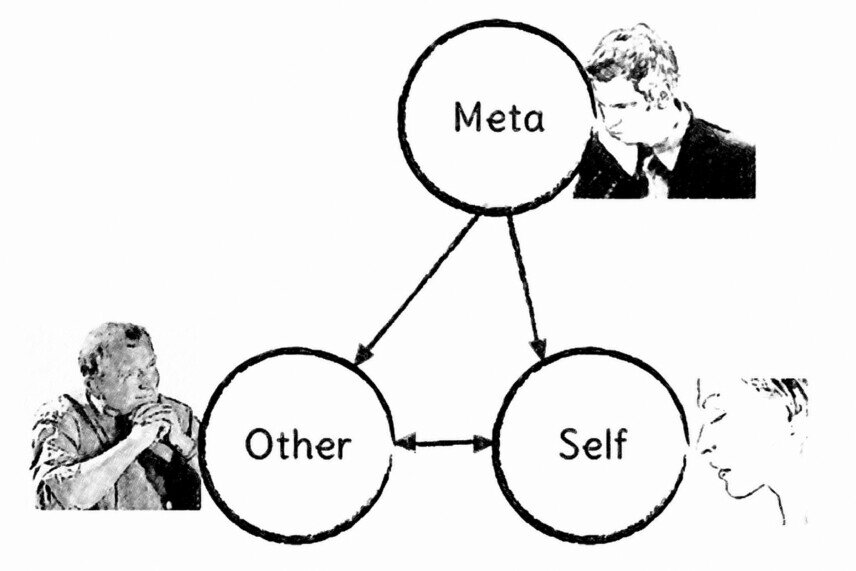Perceptual positions
Every situation is perceived differently from various perspectives and their subjective context. The so-called perceptual positions consist of three views - Self and Other (Participants) and Meta, an external overview that does not belong to the observed event. The look from different perspectives, this mental exchange of roles, leads to a comprehensive understanding that paves the way to new insights.

Perceptual positions consist of three perspectives: Self, Other, and Meta.
- Self
The position of Self is the associated view (Self-position), in which the own point of view is described in further detail. Associated means that one seizes a situation from inside, with all senses and feelings. Personal convictions, opinions and experiences form the basis to evaluate their position. For example, an executive judges a meeting based on own interests and logic, e.g., „I have to save 10% and waive new PCs for this year.“
- Other
The position of Other is a dissociated view (Other-position) to try to understand the counterpart. Dissociated means that one looks from outside on oneself, with all senses and feelings of other people. Convictions, opinions, and experiences of the others are supposed to judge the circumstances. In our example, the Other evaluates the situation based on assumed interests and conclusions, e.g., “He limits us by not purchasing new PCs.”
- Meta
The Meta position is a dissociated view (Meta position) to look at the circumstances unbiasedly. Dissociated means that the status is observed from outside, with all senses and expert knowledge of an adviser. Convictions, opinions, and experiences are formulated to evaluate the condition neutrally and find alternative solutions. In our example, Meta provides from an objective reflection a proposal “There are additional opportunities to save 10% and to purchase new PCs.”
The change of perspective provides routinely new knowledge. With each assessment, other views should always be taken.

